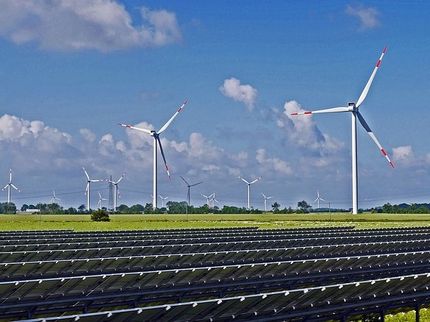Embodied Intelligence: Engine of the Digital Transformation 2.0
Addressing current and future challenges with the help of embodied intelligence
Advertisement
The results of a broad-based investigation conducted by fortiss, Siemens AG, the German Dialogue Institute and the Center for Digital Technology and Management have been released under the title “Embodied Intelligence: Engine of the digital transformation 2.0”. The goal was to identify the societal, economic and technical developments and challenges of embodied intelligence (EI) and recommend actions for government, business, education and science. The investigation focused on the question of how we can ensure our standard of living by actively addressing the challenges of the digital transformation, while at the same time actively managing it.

Symbolic image
Computer-generated image
The Digital Transformation 2.0 is a highly-dynamic process that is leading to a completely new economic architecture dimension. As a result, the use of digital ecosystems is turning into an imperative success factor for companies given that day-to-day products and goods are becoming digital building blocks for the realization of a significant part of the value chain. Embodied intelligence will be one of the future players in these digital ecosystems. And in order to successfully address this paradigm change, the development of the production landscape in Germany must be even more strongly characterized by overriding issues such as adaptability, real-time systems, autonomous control and sustainability.
Progress in autonomous machines illustrates how AI and robotics are converging in more and more areas. The emergence of embodied intelligence is closely related to this development. Things that contain embodied intelligence are systems that can regulate themselves and increasingly react to changes in their environments in an adaptive fashion. They can also react with little or no human intervention and in the future be able to represent parts of our infrastructures. While initial approaches are already being employed today, it won’t be until the future that much more mature forms will appear.
Embodied intelligence as a future driver of growth
A team of fortiss scientists led by project manager Markus Duchon explains that over the mid-term, machines with embodied intelligence will form the central basis of innovation for the next cycle of growth. This applies especially to the platform economy. For this reason, the use of EI can be formulated as a long-term societal, economic and technology goal. Furthermore, developments in these areas will yield great human benefits in key fields of application such as information and communications technology and the integrated sensor systems, intelligent materials and production, plus energy supply and transport.
In their presentation, Markus Duchon and his colleagues explain that previous physical marketplaces and value chain systems are increasingly evolving into virtual infrastructures. This trend is clearly visible not only with online retailers and social media, but also in the allocation of government and public administration tasks. At the same it time it has become readily apparent that in terms of decentralized energy production, the development of satellite-based communication infrastructures or the use of self-driving vehicles, although humans will initially be responsible for operating the existing infrastructures, in the future these tasks will be assumed by EI systems.
Addressing current and future challenges with the help of embodied intelligence
In summary, the investigation identifies key areas of action up to the year 2035 that could be actively shaped through the use of embodied intelligence and in the context of the platform economy. With this information as a basis, the authors derive concrete recommendations for action for government, business, education and science.
Development in the individual areas will be strongly driven by accelerated urbanization, migration, demographic change, the pursuit of independence from energy - and to some extent water and food provisioning – in addition to climate change and government dysfunction. For this reason, fast action and implementation of the recommendations is urgently required in order to actively help shape the digital transformation in a targeted fashion.
Employing embodied intelligence to deal with climate change
The degree to which the investigation is important and thematic is illustrated by the reference to the necessary transformation of the global energy sector from fossil fuels to a CO2-neutral energy. By the second half of this century this process will also accelerate the development of a new form of machines with embodied intelligence. In particular, combining embodied intelligence with renewable energy and using the platform economy to increase energy efficiency, is seen as a key lever to achieve the required reduction in CO2 emissions.
The Research Institute of the Free State of Bavaria for Software-intensive Systems will now apply these findings to a new project referred to as Affordable Industrial Mobility Energy Ecosystem (AIMEE), which will involve the accelerated transformation of industrial e-mobility through energy-as-a-service (EaaS) models. The goal is to establish a product-service system for energy storage and storage capacity. Within the framework of this platform-based system, the idea is to transform energy storage from a product into a service as a way of offering sustainable and cost-effective storage capacity.




























































